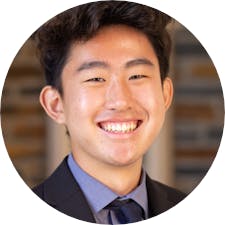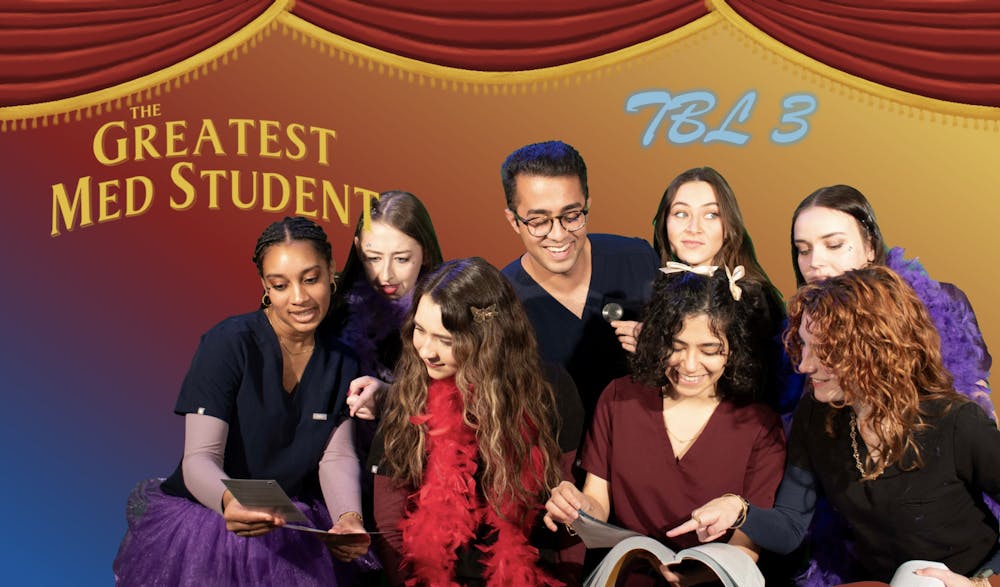Over the past nine months, students and faculty at the School of Medicine have been producing their annual Medical Student/Faculty Show to fundraise for a local Durham charity.
This year’s show is titled “The Greatest Med Student” and will be held March 1 at the Bryan Center’s Reynolds Theater. Tickets are available online and a livestream will be available for those unable to attend in person.
An online silent auction and raffle is currently live until March 3, offering gift cards, an overnight stay at The Durham Hotel, a cap signed by former Duke men’s basketball coach Mike Krzyzewski and more, with all donations also going to the local charity.
This year’s show is a parody of “The Greatest Showman” and addresses themes relevant to medical students, such as imposter syndrome and the importance of remembering why students chose to pursue a career in medicine.
The Medical Student/Faculty Show is an annual tradition that dates back to the 1940s. According to Madhura Pande, a third-year medical student and co-director of the show, the production has developed both in size and intensity since then, evolving from simple skits to what is now a formalized production.
Production efforts for this year’s show began in July 2023, as students rallied to piece together the production. Departments in the School of Medicine also contributed funding to the show’s production.
Lulla Kiwinda, a third-year medical student and co-director alongside Pande, reflected on her growth while working on the SFS.
As a first-year medical student, Kiwinda played Elle Woods in the 2022 SFS “Medically Blonde” and calls her experience an integral part of figuring out what type of production she wanted from the co-director’s perspective.
Most of the members working on the project are first- or third-year medical students due to the clinical rotation requirement for second-years. Many of the medical students involved have no prior theater experience and the show's logistics, from lighting to choreography, were a result of brainstorming and discussions among students, Kiwinda said.
Koumani Ntowe, a third-year medical student and SFS fundraising chair, explained that the roles were primarily self-selected in terms of both stage responsibilities and time commitment.
“Some people liked writing and focused on the script; some people had a strong dance background and focused more on choreography,” she said. “Everyone kind of chose their role based on their strengths.”
Kiwinda explained that students’ flexible third-year medical research gives students time to work on the show, which also counterbalances academic stress.
“Honestly, the easiest reason to balance it is [that] it's fun,” Kiwinda said. “I might come into this and be tired, but seeing the cast be excited for each rehearsal day energizes me and gives us motivation to continue doing it.”
Madhura agreed, citing SFS as a great way to meet new people during her first year of medical school, providing a healthy change in atmosphere from the usual biweekly exams and preclinical material.
The SFS has helped them reaffirm the importance of interpersonal relationships and soft skills needed to become a talented physician. Kiwinda, who is pursuing a surgical specialty, described how she always envisioned the operating room as a stage on which she was performing.
“The [operating room] is similar in that it’s not like blocking or choreography, but everything does have very specific moves and responsibilities and the way they move and interact around one another,” she said.
The creative process provided a fresh outlook on medicine, specifically through the lens of the story and the struggles of the main character. For many students, the plot mirrored their sentiments coming into medical school.
“I think that when you are a medical student, you can’t let your life revolve around medicine,” Ntowe said. “[The show] is purely driven by joy and people being genuinely interested in helping the show run. I’m really happy to have a group of people who have chosen to do that.”
Get The Chronicle straight to your inbox
Sign up for our weekly newsletter. Cancel at any time.

Andrew Bae is a Trinity junior and an editor-at-large of The Chronicle's 120th volume.

